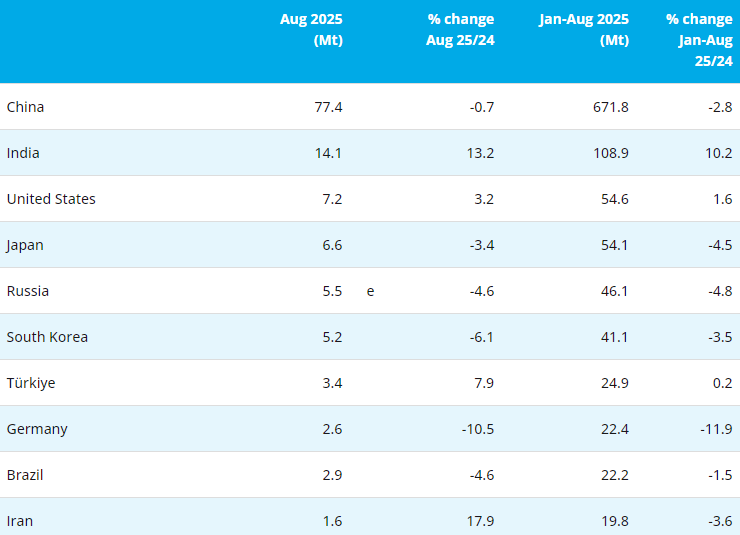[ferro-alloys.com]German auto maker giant Volkswagen has just upped its bet on electric vehicles (EVs) by overhauling its Salzitter plant to focus on production processes for battery cells for the new generation of cars, which the company plans to also start producing soon.
The Wolfsburg-based company said it would invest 870 million euros (about $985 million) by 2020 to develop e-vehicle components, adding that its components division, which makes engines and steering parts, will now be in charge of producing, packing and overseeing recycling of battery cells and packs.
VW has been actively promoting the electric push by creating global production capacities for the construction of 1 million electric cars. Late last year, it announced it would spend nearly $50 billion to refocus on the making of electric cars, autonomous vehicles and new mobility services.
As part of the overhaul, the carmaker began converting three of its plants in Germany to build EVs and to ramp up production of zero-local emission cars ahead of tougher European emissions standards.
VW also said it would start developing mobile electric car charging stations at its nearby plant in Hannover, which currently makes engines and castings for traditional cars, which the company will stop producing in 2026.
The company will bundle cells from EV batteries into storage power banks that can be used to recharge up to 15 e-cars at a time and be transported to wherever power is needed.
Drivers will be able to find mobile charging stations thanks to an app on their smartphone, it said.
"It can be set up flexibly and independent of the power supply wherever it is needed: for example, in public parking lots in the city, on company premises, or as a temporary charging point at large-scale events," VW said.
Volkswagen’s shift to e-mobility is also adding jobs in the U.S. Last week, the company said it would build an $800 million plant in Chattanooga, Tennessee, creating 1,000 positions, plus additional ones at suppliers. EV production there will begin in 2022.
The company also recently announced it was investing in Forge Nano, a California-based start-up that seeks to improve the efficiency of battery cells.
Late last year, Germany set aside more than $1 billion to support domestic production of battery cells, and there’s been talk of a national consortium that may include Volkswagen.
The news comes a couple of days after the world’s largest maker of battery cells, China’s CATL, announced it planned to produce 60 gigawatt hours (GWh) beginning in 2026 from its battery factory in Germany, its first production site in Europe.
Recent studies show carmakers will need to add EVs to their sales lineups to meet the new European Union rules on greenhouse gas emissions from 2021. They also highlight how German carmakers need to rethink their business as the growing adoption of EVs is expected to cost the country's key auto industry about 75,000 jobs by 2030, according to a report carried out by the Fraunhofer Institute of Industrial Engineering.
Those figures, the institute said, were calculated on the assumption that by 2030, a quarter of all vehicles on Germany's roads will be fully electric. Another 15% is expected to be hybrids, which combine an electric motor with a traditional internal combustion engine, and 60% of the cars will be powered by gasoline or diesel engines that are more fuel-efficient than today.
A more rapid adoption of electric vehicles could threaten up to 100,000 jobs, the study warned, adding that regardless of the final number, there will be suppliers that simply won't be able to adapt their business model, especially among small- and medium-sized companies.
While relatively slow to catch onto the ongoing EV boom, German carmakers have stepped up their efforts in the wake of VW's 2015 "diesel gate" emissions cheating scandal, which tainted the reputation of diesel cars and spurred a push towards more environmentally friendly engines.
BMW recently said raw materials needed for car batteries will grow 10-fold by 2025, adding it has been surprised by "just how quickly demand will accelerate". BMW plans to offer 25 electrified vehicles by 2025 and, like many of its peers, it prefers nickel-manganese-cobalt batteries or NMC. EV pioneer Tesla's favoured battery technology –nickel-cobalt-aluminum or NCA – already uses less than 3% cobalt.
(Mining.com)
- [Editor:王可]



 Save
Save Print
Print Daily News
Daily News Research
Research Magazine
Magazine Company Database
Company Database Customized Database
Customized Database Conferences
Conferences Advertisement
Advertisement Trade
Trade
















Tell Us What You Think